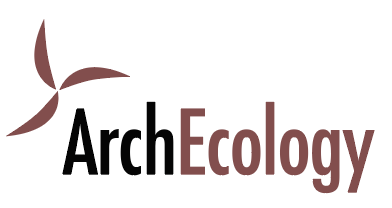Vote NO on I-2066 and I-2117
Climate advocates have made great progress in Washington State in recent years. This year, however, there is pushback on this progress–mostly from special interests that benefit financially from the sale of fossil fuels. Two initiatives that are a serious concern are I-2117 and I-2066.
Besides the campaign slogans, what do these initiatives really do?
I-2117 reverses the Climate Commitment Act which caps greenhouse gas emissions from the largest emitters in the state.
Businesses whose annual emissions are in excess of 10,000 metric tons of CO2 are required to report emissions to the WA Dept of Ecology. And businesses whose annual emissions exceed 25,000 metric tons of CO2 are required to obtain allowances from the Dept of Ecology to cover their emissions. These allowances can be used for compliance, saved for future years or sold to other businesses.
The auction of the allowances raises money which is then invested into the community.
We believe this law is a great way to reduce emissions and provide funding to communities to allow them to make investments in climate resilience. The initiative would not only repeal the law, but prohibit the legislature from creating any kind of similar “cap and trade” or “cap and invest” -type program in the future. This severely limits the ability of the legislature to address climate change.
Since the CCA requires large industry to purchase allowances, you can guess who opposes the CCA and is sponsoring I-2117. The CCA is law, it is working, and it is an important tool for our fight for the future.
I-2066 is another initiative that intends to undo progress toward clean energy. Although the initiative sponsors use a highly emotional and misleading tagline (Stop the Gas Ban) it is much more than a repeal of portions of HB 1589 which was passed by the legislature in March of 2024.
The intent of HB 1589 is to incentivize large utilities (namely Puget Sound Energy) to reduce greenhouse gas emissions and offer incentives to customers to decarbonize homes and buildings. Although HB 1589 does not ban gas, the intent is to move toward building electrification, to reduce emissions, save energy and protect human health.
I-2066 removes the ability of local jurisdictions to make their own choices.
By adding a restriction that prevents the building code council, cities or towns or authority from adopting amendments that “…in any way prohibit, penalize, or discourage the use of gas for any form of heating, or for uses related to any appliance or equipment, in any building.” This would take the energy code back several code cycles, undoing years of progress.
I-2066 derails progress toward our clean energy transition.
It would strike a requirement for PSE to develop a plan to achieve cost-effective electrification of end uses served by natural gas. This transition to clean energy is critical to addressing climate change.
I-2066 is bad for our health and safety.
Natural gas has been proven hazardous to human health – and not just by adding to climate change. Indoor air pollution from natural gas appliances (including water heaters, furnaces and gas stoves) causes asthma and other upper respiratory illnesses – especially in children. Dangerous pipeline disasters including leaks and explosions have happened all over the country.
I-2066 increases energy bills.
For heating and hot water, heat pumps are 3-4 times more efficient than natural gas. They also provide the benefit of cooling which is becoming more necessary in our warmer summers. Funding to help homeowners pay for switching to a heat pump would go away if 2066 passes. It would also impact efforts to improve our air quality and Seattle’s new Building Emissions Performance Standard.
The intention of I-2066 isn’t to protect energy choice. It is to undo energy efficiency to keep people paying higher energy bills.
For more information: Vote no on I-2066, keep energy code protections | The Seattle Times
